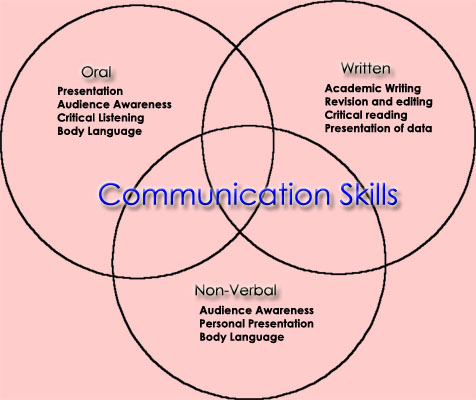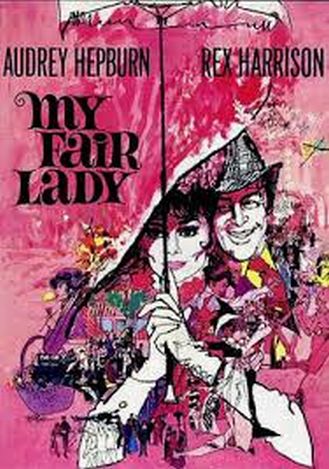|
« on: March 19, 2017, 06:24:21 AM »
|
When writing in English, you’ll encounter not just a few situations when you can’t easily decide or it will get tricky whether to use a gerund phrase or an infinitive phrase. The most familiar of such situations is choosing between these two constructions: “I’m looking forward to meeting you again on Valentine’s Day” or “I’m looking forward to meet you again on Valentine’s Day.” Which should it be?
You can pick whichever of the two sentences you’re more comfortable with, for clearly, both are grammatically correct and convey practically the same sense. The only difference is that in the first construction, the gerund phrase “meeting you again” is functionally the object of the preposition “to,” through which that gerund phrase indirectly receives the action of the phrasal verb “looking forward.” In the second construction, the infinitive phrase “to meet you again” is functionally the direct object of “looking forward.”
It’s just a happy coincidence though that the two constructions—one using the gerund phrase “meeting you again” and the other using the infinitive phrase “to meet you again”—are perfectly synonymous and interchangeable. You’ll recall that both the gerund phrase and infinitive phrase are verb forms that function as nouns, which means that both can work as subject, object, or complement in a sentence. Generally, however, gerunds and infinitives (and, by extension, gerund phrases and infinitive phrases) are not mutually equivalent or freely interchangeable. While some operative verbs can take either a gerund or infinitive as direct object, other verbs balk and just won’t take an infinitive as direct object at all.
For instance, a sentence that has “continue” as operative verb can have either a gerund phrase or an infinitive phrase as direct object (or as object of the preposition). Consider this sentence: “They continued loving each other all throughout the years.” The gerund phrase “loving each other all throughout the years” works without any hitch as direct object of the verb “continued,” but so does its infinitive phrase equivalent “to love each other all throughout the years” in “They continued to love each other all throughout the years.” Both sentences have precisely the same sense, too.
The following operative verbs, like “continue,” can likewise take either a gerund phrase or infinitive phrase as a direct object: “attempt,” “begin,” “start,” “leave,” “stop,” “continue,” “love,” “like,” “dislike,” “hate,” “remember,” “forget,” “neglect,” “regret,” “intend,” “plan,” “permit,” “plan,” “prefer,” “propose,” “try,” and “mean.” However, some operative verbs can only take a gerund or gerund phrase—never an infinitive or infinitive phrase—as a direct object. Among them are the verbs “admit,” “advise,” “appreciate,” “anticipate,” “avoid,” “consider,” “delay,” “deny,” “discuss,” “enjoy,” “excuse,” “finish,” “keep,” “mind,” “miss,” “postpone,” “practice,” “quit,” “recall,” “recommend,” “regret,” “resent,” “resist,” “resume,” “risk,” “tolerate,” “try,” “understand,” and “imagine.”
Take “anticipate” as operative verb, for instance. It works perfectly with the gerund phrase “receiving the next delivery tomorrow” as direct object” in “We anticipate receiving the next delivery tomorrow,” but makes an epic fail with the equivalent infinitive phrase in “We anticipate to receive the next delivery tomorrow.”
As an operative verb, “consider” also encounters the same problem. It works perfectly with the gerund phrase “taking a short-cut to their hideaway resort” as direct object in “They considered taking a short-cut to their hideaway resort,” but likewise makes an epic fail with the equivalent infinitive phrase in “They considered to take a short-cut to their hideaway resort.”
So the big question is: Is there a formula for finding out whether a gerund phrase or infinitive phrase will function properly as direct object of a particular operative verb? Other than a good working knowledge of how gerunds and infinitives work, there’s actually no simple ground rule for that. We just have to play it by ear when we construct sentences using specific operative verbs.
This essay, 1029th in the series, first appeared in the weekly column “English Plain and Simple” by Jose A. Carillo in the Education Section of the February 16, 2017 issue (print edition only) of The Manila Times, © 2017 by the Manila Times Publishing Corp. All rights reserved.
You can pick whichever of the two sentences you’re more comfortable with, for clearly, both are grammatically correct and convey practically the same sense. The only difference is that in the first construction, the gerund phrase “meeting you again” is functionally the object of the preposition “to,” through which that gerund phrase indirectly receives the action of the phrasal verb “looking forward.” In the second construction, the infinitive phrase “to meet you again” is functionally the direct object of “looking forward.”
It’s just a happy coincidence though that the two constructions—one using the gerund phrase “meeting you again” and the other using the infinitive phrase “to meet you again”—are perfectly synonymous and interchangeable. You’ll recall that both the gerund phrase and infinitive phrase are verb forms that function as nouns, which means that both can work as subject, object, or complement in a sentence. Generally, however, gerunds and infinitives (and, by extension, gerund phrases and infinitive phrases) are not mutually equivalent or freely interchangeable. While some operative verbs can take either a gerund or infinitive as direct object, other verbs balk and just won’t take an infinitive as direct object at all.
For instance, a sentence that has “continue” as operative verb can have either a gerund phrase or an infinitive phrase as direct object (or as object of the preposition). Consider this sentence: “They continued loving each other all throughout the years.” The gerund phrase “loving each other all throughout the years” works without any hitch as direct object of the verb “continued,” but so does its infinitive phrase equivalent “to love each other all throughout the years” in “They continued to love each other all throughout the years.” Both sentences have precisely the same sense, too.
The following operative verbs, like “continue,” can likewise take either a gerund phrase or infinitive phrase as a direct object: “attempt,” “begin,” “start,” “leave,” “stop,” “continue,” “love,” “like,” “dislike,” “hate,” “remember,” “forget,” “neglect,” “regret,” “intend,” “plan,” “permit,” “plan,” “prefer,” “propose,” “try,” and “mean.” However, some operative verbs can only take a gerund or gerund phrase—never an infinitive or infinitive phrase—as a direct object. Among them are the verbs “admit,” “advise,” “appreciate,” “anticipate,” “avoid,” “consider,” “delay,” “deny,” “discuss,” “enjoy,” “excuse,” “finish,” “keep,” “mind,” “miss,” “postpone,” “practice,” “quit,” “recall,” “recommend,” “regret,” “resent,” “resist,” “resume,” “risk,” “tolerate,” “try,” “understand,” and “imagine.”
Take “anticipate” as operative verb, for instance. It works perfectly with the gerund phrase “receiving the next delivery tomorrow” as direct object” in “We anticipate receiving the next delivery tomorrow,” but makes an epic fail with the equivalent infinitive phrase in “We anticipate to receive the next delivery tomorrow.”
As an operative verb, “consider” also encounters the same problem. It works perfectly with the gerund phrase “taking a short-cut to their hideaway resort” as direct object in “They considered taking a short-cut to their hideaway resort,” but likewise makes an epic fail with the equivalent infinitive phrase in “They considered to take a short-cut to their hideaway resort.”
So the big question is: Is there a formula for finding out whether a gerund phrase or infinitive phrase will function properly as direct object of a particular operative verb? Other than a good working knowledge of how gerunds and infinitives work, there’s actually no simple ground rule for that. We just have to play it by ear when we construct sentences using specific operative verbs.
This essay, 1029th in the series, first appeared in the weekly column “English Plain and Simple” by Jose A. Carillo in the Education Section of the February 16, 2017 issue (print edition only) of The Manila Times, © 2017 by the Manila Times Publishing Corp. All rights reserved.


























